Home
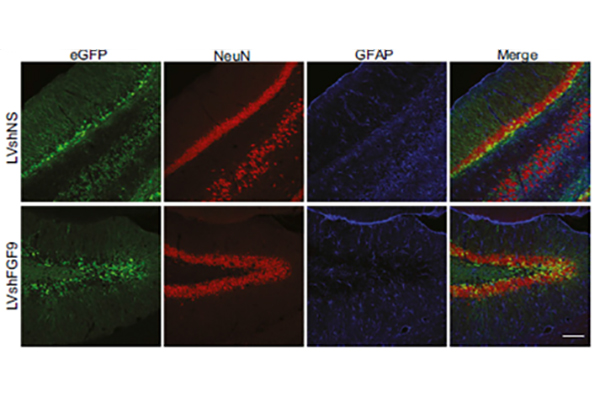
Brain Protein Discovery Points to New Factor in Depression
Pritzker Consortium researchers have discovered that levels of a protein called fibroblast growth factor 9 or FGF9 are increased in depressed brains. In this case, people with major depression had 32 percent more of FGF9 in a key part of their brain than people without the condition.
The image to the left is of the rat hippocampus at the level of the dentate gyrus.
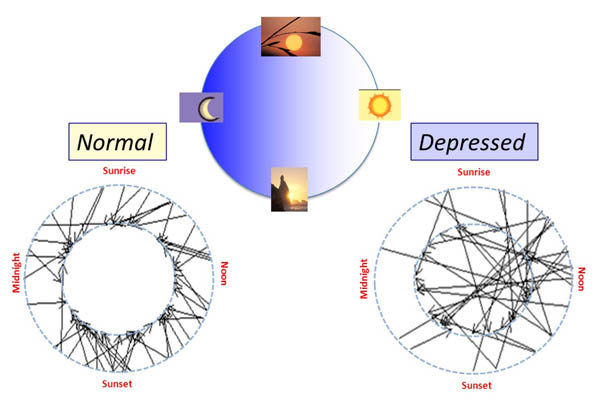
Out of Sync with the World
Pritzker Consortium researchers have found evidence that the body clock is “broken” in the brains of people with depression at a genetic level.
The researchers used gene expression patterns to predict time of death for each person in the study (inner circles) and compared it with the actual time of death (outer circles). The two times matched closely in normal people but were out of sync in depressed people.

The Pritzker Neuropsychiatric Disorders Research Consortium
The Pritzker Consortium seeks to discover the neurobiological and genetic causes of three major psychiatric disorders, Major Depressive Disorder, Bipolar Disorder and Schizophrenia.
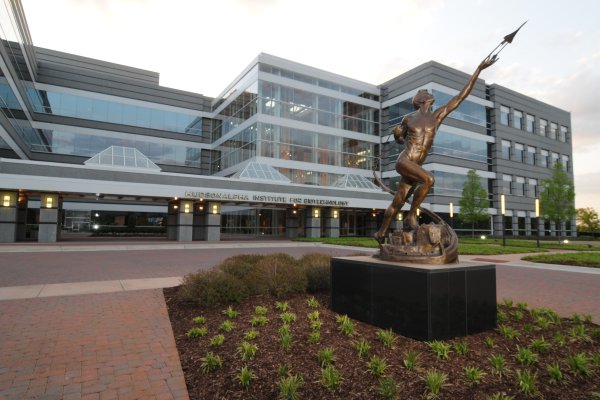
HudsonAlpha Institute for Biotechnology
Dr. Richard Myers and his group at the HudsonAlpha Institute oversee state of the art efforts in genetics and genomics, including genome-wide methylation assays, RNASeq, and Deep Sequencing capabilities.
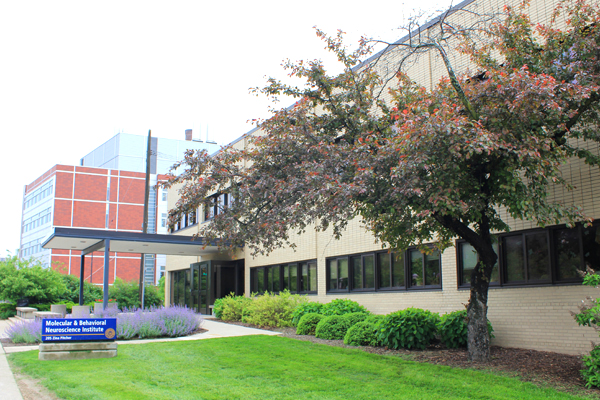
The Molecular & Behavioral Neuroscience Institute at the University of Michigan
Drs. Huda Akil and Stanley Watson at UM study the relationship between genes, behavior and the brain. Drs. Akil and Watson aim to elucidate and validate the function(s) of genes that demonstrate significant differences in expression or structure and to determine their distribution in pathways, circuits and target systems.
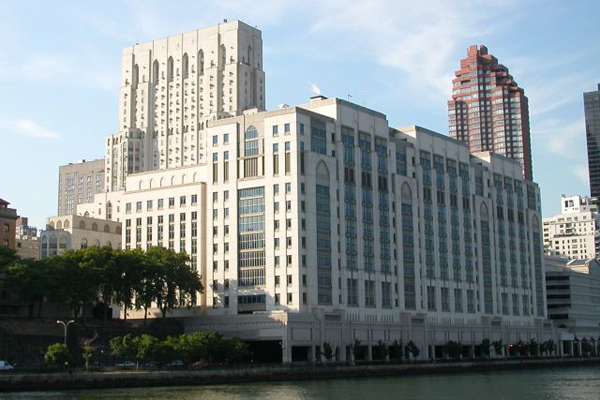
The Weill Cornell Department of Psychiatry
The Weill Cornell Department of Psychiatry is one of the largest, most prestigious departments in the country, with a long, distinguished history of providing outstanding leadership in clinical care, training, and research in all areas of psychiatric disorders.

The UC Irvine Brain Bank Team
A large number of the projects undertaken by the Pritzker Consortium rely on the high-quality tissue provided by the UC Irvine Brain Bank. The Brain Bank collects brains from schizophrenic, major depressive disorder, bipolar disorder subjects and controls.

Stanford University Department of Psychiatry and Behavioral Sciences
The Stanford University Department of Psychiatry and Behavioral Sciences is a center for the advancement of psychiatric practice, research and education.
Caption Heading
Caption Text

